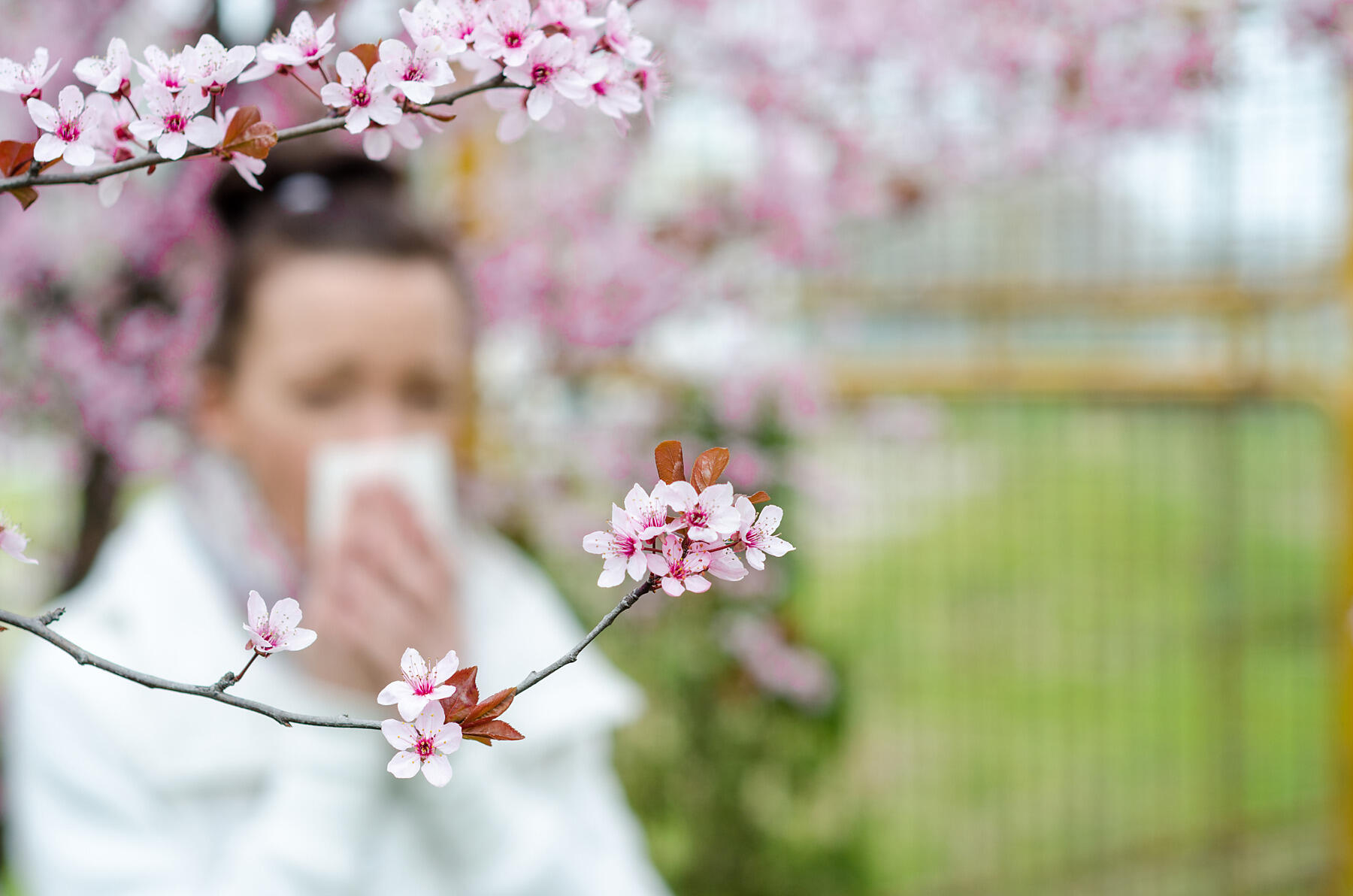April 27, 2016
Tips for surviving this spring’s allergy season
Share this story
April showers may bring the loveliness of May flowers, but, for some, the pollen that accompanies those flowers is an unwelcomed tagalong to warmer weather. Pollen, a fine yellowish powder transported from plant to plant by the wind, is one of the biggest instigators of the seasonal allergies that affect nearly 50 million people in the United States. Symptoms include runny noses, runny eyes and nasal congestion that affects all ages.
VCU Health’s Theodore Schuman, M.D., is the director of the otolaryngic allergy program at the Department of Otolaryngology in the Virginia Commonwealth University School of Medicine. For those who suffer with seasonal allergies, he said, there are ways to combat, if not conquer, its effects.

What period of the year typically marks allergy season?
Allergy symptoms can occur throughout the year, depending on an individual’s environmental sensitivities. Pollen allergies tend to be seasonal. Tree pollen is worse in the spring, whereas grass pollen peaks in the summer and weed pollen in the fall. Other allergens can cause symptoms year-round, including pets, mold and dust mites.
What are the typical signs that a person suffers with allergies?
Allergy symptoms can vary, but most commonly include runny nose, sneezing, itchy and watery eyes, and nasal congestion. Patients with asthma may experience worsening of their breathing during periods of heavy allergen exposure. Postnasal drip, throat itchiness, hoarseness and ear discomfort can also occur. Less commonly, allergen exposure can trigger worsening of other chronic underlying diseases, such as migraine headaches, eczema and even vertigo.
What over-the-counter-type medications help with allergies?
For most people, over-the-counter antihistamines are an excellent first-line treatment for allergy symptoms. Newer versions of these medications are much less sedating and include cetirizine, loratadine and fexofenadine. Most patients can tolerate these medications for long periods of time with minimal side effects. Older generation antihistamines such as diphenhydramine can be used for more severe allergic symptoms or before bed, but cause considerable drowsiness and should definitely not be used before driving. Several nasal steroid sprays are available over-the-counter, including fluticasone and triamcinolone. Others include nasal saline sprays and rinses, guaifenesin and topical cromolyn. Nasal decongestant sprays such as oxymetazoline or phenylephrine are helpful for severe congestion but should generally not be used for more than three days.
What about the weather elements in Richmond make its residents susceptible to allergies?
Richmond routinely shows up in lists of areas most affected by environmental allergies. The city has a long growing season and numerous trees, grasses and weeds that are often associated with significant symptoms. The region also has a lot of wet, low-lying land that is conducive to the growth of outdoor molds.
What can allergy sufferers do around their homes to combat their allergies?
This depends on an individual’s specific triggers. Individuals with cat or dog allergy are, understandably, rarely willing to get rid of their pet, and should create a “safe room,” usually the bedroom, where the pet is not allowed. Minimizing heavy carpets, drapes and throw blankets can help reduce levels of pet dander as well as aid in dust mite allergy, as can high-efficiency air filters. Specialized HVAC filters and vacuums can be employed to help remove the small particles leading to allergy. Dust mites are found in bedding, and can be improved, but not eliminated, by using special mattress and pillow covers, as well as frequent washing of sheets in very hot water. Mold allergy sufferers should be wary of any areas of standing water or dampness that may lead to mold growth. Leaky faucets, wet basements, cat litter boxes, potted plants, old carpets and water-stained walls are all possible culprits.
What can allergy sufferers do while outdoors to combat their allergies?
Knowing one’s own allergy sensitivities can help with planning activities in such a way as to minimize suffering.
Knowing one’s own allergy sensitivities can help with planning activities in such a way as to minimize suffering. In general, pollen allergies tend to be worse in the morning and on hot, windy days. Conversely, mold allergy is worse in the evening. Patients may consider scheduling activities around these times or using medications consistently during peak allergy seasons. Local pollen counts are available and can help individuals predict when outdoor symptoms are likely to worsen. For more severe symptoms, wearing a mask when performing yardwork and changing clothes and bathing after being outside may help.
Subscribe for free to the weekly VCU News email newsletter at http://newsletter.news.vcu.edu/ and receive a selection of stories, videos, photos, news clips and event listings in your inbox every Thursday.
Subscribe to VCU News
Subscribe to VCU News at newsletter.vcu.edu and receive a selection of stories, videos, photos, news clips and event listings in your inbox.











